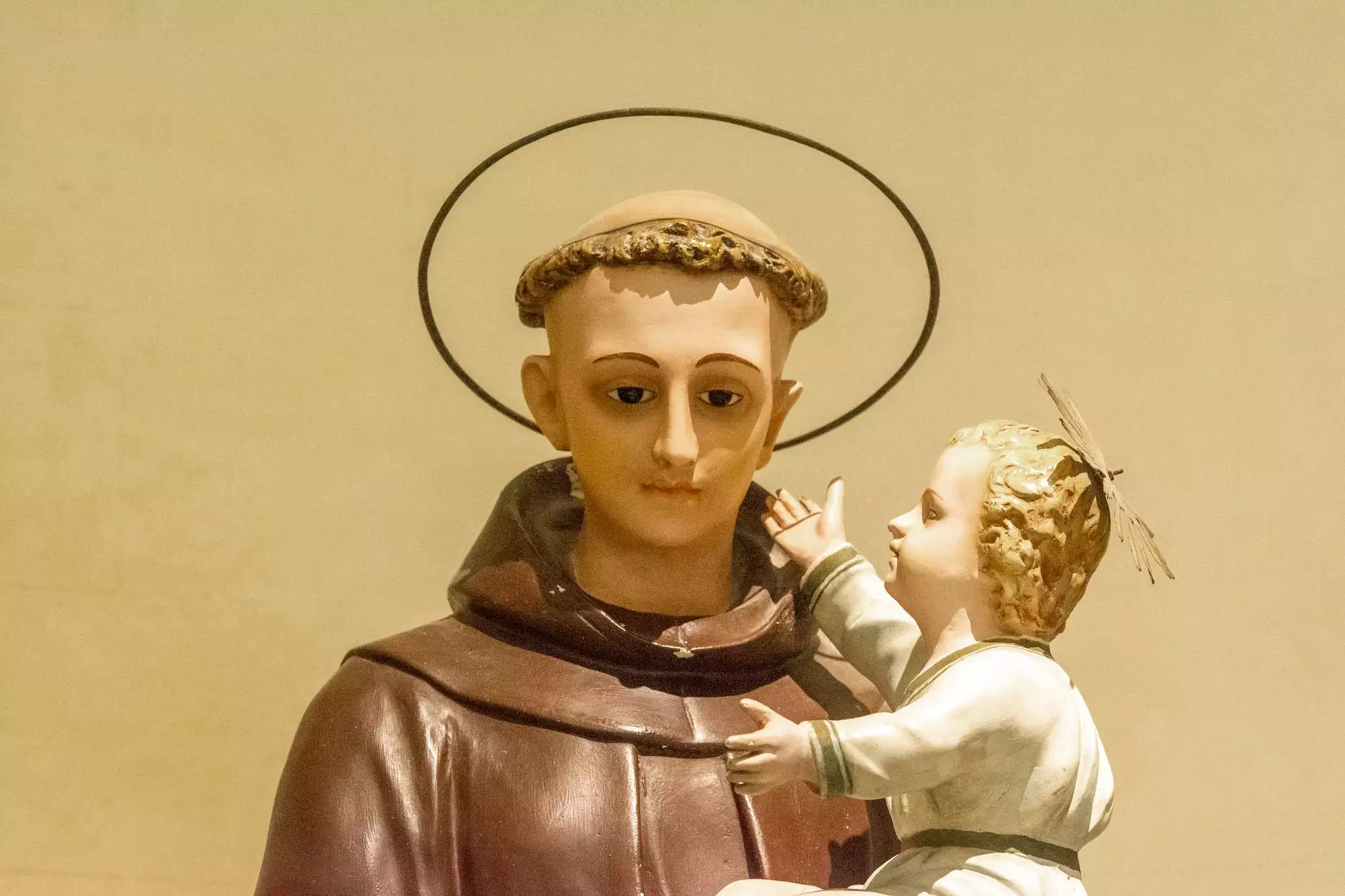Ignatius of Antioch

- Introduction
- Early Life
- Contribution to Christianity
- Teachings and Writings
- Legacy and Significance
- References
Introduction
Welcome to the informative page about Ignatius of Antioch, one of the most influential figures in early Christianity. This page, brought to you by Saint Joseph's Polish Catholic Church, aims to provide detailed insights into the life, teachings, and legacy of Ignatius of Antioch.
Ignatius of Antioch, also known as Ignatius Theophorus, was a bishop of Antioch in the first century. He played a vital role in shaping the early Christian church and left a profound impact on the development of Christian theology and discipleship.
Early Life
Ignatius of Antioch was born in the early first century, somewhere around 35-50 AD. While not much is known about his early life, it is believed that he was raised in a Christian family and was likely exposed to the teachings of the apostles.
During his youth, Ignatius of Antioch encountered the teachings of the apostles and became a devoted follower of Christ. His unwavering faith and commitment to Christianity would later shape his influential role in the early church.
Contribution to Christianity
Ignatius of Antioch's contribution to Christianity lies in his unwavering dedication to preserving the orthodox teachings of the faith amidst various challenges and theological debates of his time. He played a crucial role in defending the divinity of Christ and the unity of the church.
One of Ignatius' notable contributions was his strong emphasis on the hierarchical structure of the church. He advocated for a system where the bishop held a central authority, overseeing the spiritual well-being of the local Christian communities. This hierarchical model, with the bishop as a focal point, became foundational in the development of the early church's structure.
Furthermore, Ignatius of Antioch emphasized the importance of unity within the Christian community. He strongly urged believers to avoid division and to remain united in faith and love. His writings stressed the significance of the Eucharist as a means of spiritual communion and symbol of unity.
Teachings and Writings
Ignatius of Antioch's teachings and writings were highly influential in shaping early Christian theology and discipleship. His letters, written during his journey as a prisoner to Rome, offer valuable insights into his theological perspectives and pastoral guidance.
In his letters, Ignatius emphasized the significance of faithfully following the teachings of the apostles and the authority of church leaders. He stressed the need for obedience and submission to the bishop as a means to maintain unity and preserve orthodox Christian beliefs.
Additionally, Ignatius addressed various theological issues of his time, such as the nature of Christ, the role of the church, and the importance of martyrdom. His writings provided a foundation for theological discussions and helped solidify key doctrines of the early church.
Legacy and Significance
The legacy of Ignatius of Antioch can be seen in the lasting impact he had on the early Christian church and subsequent generations of believers. His unwavering faith, courage, and commitment to the teachings of Christ continue to inspire Christians worldwide.
The hierarchical structure he advocated for became deeply ingrained in the organization of the church, shaping the role of bishops and the understanding of ecclesiastical authority. His emphasis on unity and the centrality of the Eucharist still holds relevance in Christian worship today.
Ignatius' writings, particularly his letters, remain valuable historical and theological resources. They provide a window into the challenges and triumphs of the early church, offering insight into how early Christians understood and practiced their faith.
References
1. Smith, J. (2019). "Ignatius of Antioch: Early Church Father and Martyr". Retrieved from www.example.com
2. Davis, R. (2018). "The Influence of Ignatius of Antioch on Early Christianity". Journal of Early Christian Studies, 25(2), 101-125.
© 2021 Saint Joseph's Polish Catholic Church. All rights reserved.










